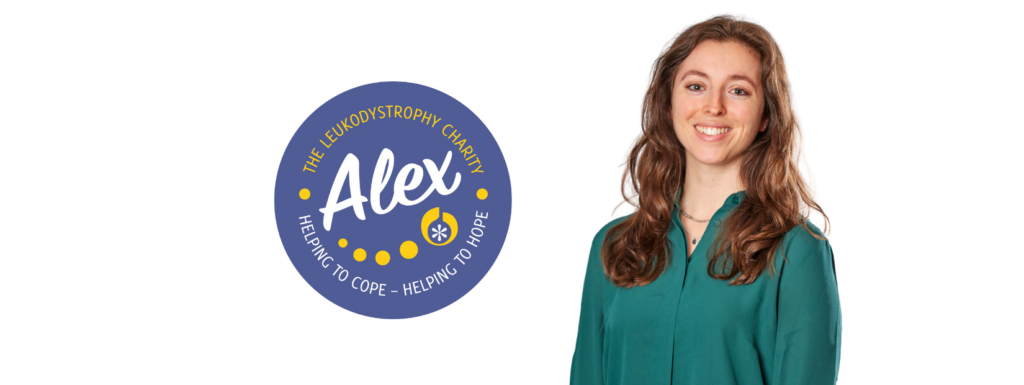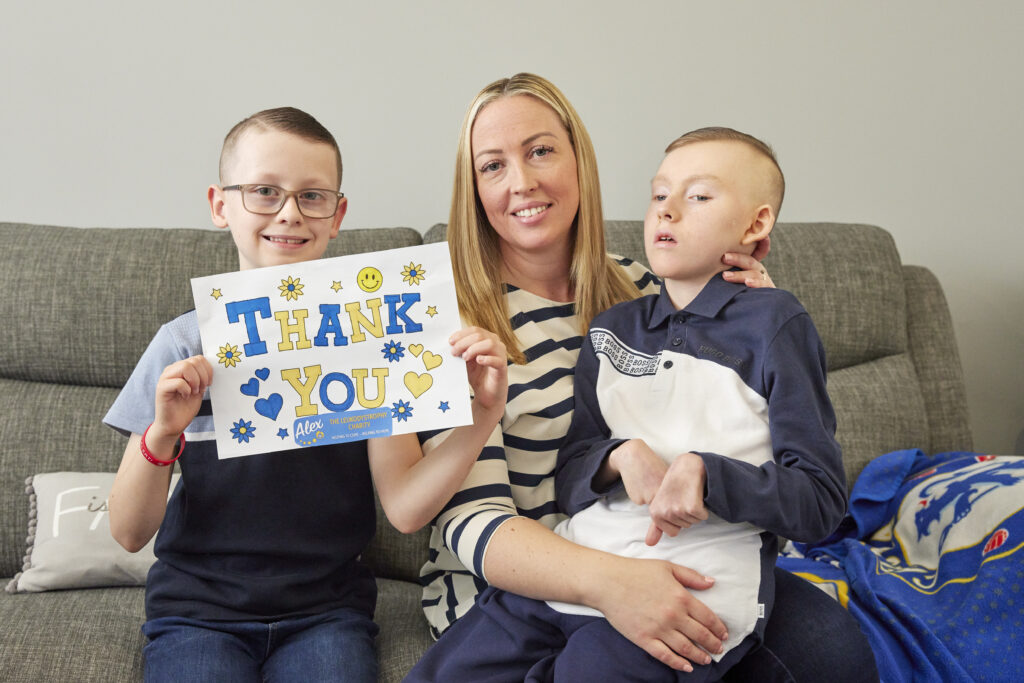Alex TLC Monthly Research Summaries

Who is Alex TLC and what are leukodystrophies?
Alex The Leukodystrophy Charity (Alex TLC) is a trusted organisation dedicated to supporting everyone affected by leukodystrophy. Leukodystrophies are rare, genetic disorders that affect the white matter of the central nervous system consisting of the brain and spinal cord. Most leukodystrophies are degenerative and may be life limiting, they can affect both men and women of any age and ethnic background but are especially common in children.
One of our key goals is to keep up with research that is beneficial to the leukodystrophy community. As demonstrated in our 2022 Charity Impact Report, we know how important it is for our community to stay informed, so we started a new research strategy in 2023 to directly address this. We implemented monthly research summaries written in simple, easy to understand language. Our aim is to make recent research updates accessible and explain how they could benefit patients. Since we established our process for the summaries, we have received very positive feedback over the last 18 months from both our community members and medical professionals alike. Many people say our summaries help them quickly grasp the latest research and understand its relevance to their condition. They also appreciated knowing about ongoing clinical trials, which gives them hope for the future.
According to our 2024 Charity Impact Survey, 69% of respondents said they find our research summaries beneficial to them and their understanding of current leukodystrophy research as they are “a quick way to understand research” and they are “…useful to keep up with current research [as] it would be difficult for me to find the information myself”. Most importantly, they find “the research summaries show that hope exists for my condition” and that they are “highly valuable to know what clinical trials are ongoing so I have hope for the future”.
How we create our monthly research summaries
To make our charity communications clear, impactful and more accessible, our team took plain English training with peer organisation Genetic Alliance. As research documents are complicated to read and use technical language, summarising them in plain simple language ensures more people can have an improved understanding of how research works and how it could impact them and/or those they care for.
Each month, I, as the research analyst, collect the latest leukodystrophy research and select the most relevant and impactful articles. Topics of the articles can include:
- Mechanisms of disease (how it works)
- Diagnosis
- Disease progression
- Biomarkers
- Treatments
- Impacts of living with the disease
We include information from clinical trials, natural history studies, patient registries, and new research. We only add case reports if a new case is covered, or it has a significant impact for multiple patients. Press releases from pharmaceutical companies where the information does not need to be summarised are added to the “Concise Articles” section. In some cases, press releases may need to be summarised for clarity or to highlight important pharma developments. We have strict guidelines and parameters for sourcing information to ensure it is accurate and can be trusted. This includes only using peer reviewed research, research from trusted scientific journals, and updates from trusted pharmaceutical companies.
Bridging the gap between research and the community
Through our research communications and activities, we can be an accessible bridge between the research community and the Alex TLC patient and carer community. Thanks to funding from the National Lottery, we have a dedicated research analyst, who not only understands the science but communicates this important information in a way that is easy to understand. The research analyst creates monthly research summaries which help raise community awareness and understanding of key research goals and developments, increasing knowledge and reducing misunderstandings about research. Our research summaries are accessible through our website and monthly research newsletter.
Prior to joining Alex TLC, I was not aware of leukodystrophies, but I have always been passionate about the study of genetics and helping others, so I was looking forward to applying my experience and scientific knowledge to help the Alex TLC community. Creating these research summaries has helped increase my understanding of the different leukodystrophies, current research and treatment options, as well as how best to explain the potential impact for patients. It is rewarding to see how our work supports both patients and professionals.


Through use of our stakeholder network, our own communication channels, and advertising, we have been able to find some great volunteers to work with us. One research volunteer said about their experience that, “volunteering as a research volunteer at a leukodystrophy charity has profoundly deepened my understanding of the complexities and challenges of this devastating disease. I’ve gained invaluable insights into the latest advancements in treatments and therapies and this experience has also equipped me with the knowledge and skills necessary to educate and advocate within the community.” Another research volunteer said that these research summaries “helps understanding these diseases and getting an overview of the advancements. I find it also helpful and inspirational for our own research topics as lab scientists. Mostly, I find it rewarding as a scientist to make researchers’ work accessible and support patients in every way we can.”
From both my experience and that of our volunteers, we have learned that you do not have to be personally affected by leukodystrophy to be passionate about helping the community. We are excited to share the great work we do with the rare disease community as we know how valuable it is for everyone to have access to and understand current research and the impact it has for them.
Feel free to reach out if you would like to learn more about our research summaries and how we connect the research community with the patient and carer community! https://alextlc.org/



